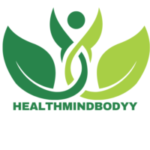11 Ways to Naturally Reduce Anxiety
Some anxiety is a typical part of life. It’s a by product of living in a busy world. Stress, the impetus for anxiety, isn’t all bad, though. It makes you aware of danger, motivates you to stay organized and prepared, and helps you calculate risks. Still, when stress becomes a daily recurrence, it’s time to act before it snowballs into chronic anxiety or worse. Unchecked anxiety may greatly impact your quality of life. You can take control by trying out the ideas below.
Living in a fast-paced world can often lead to heightened levels of anxiety, impacting both mental and physical well-being. While anxiety is a common experience, finding natural ways to manage and alleviate it can greatly improve your overall quality of life. In this blog post, we’ll explore 11 effective and natural strategies to help reduce anxiety and promote a sense of calm.

Deep Breathing Exercises:
Practice deep breathing techniques to activate the body’s relaxation response. Inhale deeply through your nose, hold for a few seconds, and exhale slowly through your mouth. Repeat this process for several minutes to calm your nervous system.
Mindfulness Meditation:
Engage in mindfulness meditation to cultivate awareness of the present moment. Focus on your breath, sensations in your body, or the environment around you. Regular mindfulness practice has been shown to reduce anxiety and improve overall mental well-being.
Regular Exercise:
Physical activity is a powerful antidote to anxiety. Regular exercise releases endorphins, the body’s natural mood lifters. Aim for at least 30 minutes of moderate exercise most days of the week to experience the mental health benefits.
Adequate Sleep:
Ensure you’re getting enough restful sleep each night. Lack of sleep can exacerbate anxiety symptoms. Establish a consistent sleep routine, create a calming bedtime environment, and limit caffeine intake in the hours leading up to bedtime.
Balanced Nutrition:
Maintain a balanced and nutritious diet. Certain foods, like those rich in omega-3 fatty acids, can have mood-stabilizing effects. Limit the intake of caffeine, sugar, and processed foods, as they may contribute to anxiety.
Herbal Teas:
Certain herbal teas, such as chamomile and lavender, have calming properties. Incorporate these soothing teas into your daily routine to help relax your mind and reduce anxiety.
Limiting Stimulants:
Reduce or eliminate stimulants like caffeine and nicotine, as they can contribute to feelings of jitteriness and nervousness. Opt for decaffeinated beverages and explore caffeine-free alternatives.
Journaling:
Expressing your thoughts and emotions through journaling can be a therapeutic way to manage anxiety. Write down your worries, fears, and positive reflections to gain better insight into your emotions.
Social Support:
Connect with friends and family regularly. Social support can provide comfort and perspective during challenging times. Share your feelings with someone you trust or consider joining support groups to foster a sense of community.
Progressive Muscle Relaxation (PMR):
Practice PMR to systematically tense and then relax different muscle groups. This technique can help release physical tension and promote a sense of calm throughout your body.
Limiting Screen Time:
Reduce exposure to screens, especially before bedtime. Blue light emitted from electronic devices can interfere with sleep patterns and contribute to heightened anxiety. Establish a “screen-free” period before bedtime to promote better sleep quality.
Also Read :Sweet Potatoes: A Nutrient-Packed Ally In Your Weight Loss Journey
Conclusion:Incorporating these natural strategies into your daily routine can contribute to a more relaxed and centered state of mind. It’s important to recognize that everyone is unique, and finding what works best for you may involve some experimentation. If anxiety persists or worsens, seeking professional guidance from a healthcare provider or mental health professional is crucial. Embracing a holistic approach to mental well-being can lead to a more peaceful and fulfilling life.
Also Read :Walking Could Lower Your Risk Of Type 2 Diabetes, And Your Speed May Affect How Much, Study Finds










